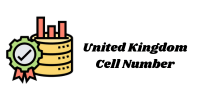2024 Buy New Zealand In today’s digital age, businesses are constantly looking. For innovative ways to engage with their customers online. One such tool that has gained popularity in recent years is the chatbot. When it comes to integrating chatbots into social media platforms like Facebook. Python emerges as a powerful programming language that can streamline the process. In this article, we will explore how businesses can leverage the combination of chatbot. Facebook, and Python to enhance their online presence and provide exceptional customer service.
What is a Chatbot?
A chatbot is a computer program designed to simulate conversation with human users. Especially over the internet. These artificial intelligence-powered bots can interact with users in a natural language format, making them an ideal tool for providing instant responses and personalized interactions. Chatbots can be integrated into various platforms, including websites, messaging apps, and social media channels like Facebook.
How Does a Chatbot Benefit Businesses on Facebook?
Integrating a chatbot on Facebook can bring a myriad of benefits to businesses looking to streamline customer service and improve engagement. Some of the key advantages include:
- 24/7 Customer Support: Chatbots can provide round-the-clock customer support. Ensuring that queries are addressed promptly, even outside of regular business hours.
- Personalized Interactions: By analyzing user data and behavior, chatbots can deliver personalized recommendations and responses to users. Enhancing the overall customer experience.
- Lead Generation: Chatbots can qualify leads. Capture contact information, and guide users through the sales funnel. Ultimately driving conversions and revenue.
- Cost-Efficient: Chatbots can handle a large volume of inquiries simultaneously. Reducing the need for human agents and saving businesses time and resources.
Why Choose Python for Developing a Facebook Chatbot?
Python has emerged as a preferred programming language for building chatbots due to its simplicity, versatility, and vast ecosystem of libraries and frameworks. Some of the reasons why Python is an excellent choice for developing a Facebook chatbot include:
- Easy to Learn and Use: Python’s clean syntax and readability make it easy for developers of all levels to grasp, reducing the learning curve and allowing for faster development.
- Rich Library Support: Python boasts a wide range of libraries and frameworks, such as NLTK and Flask, that simplify the process of building and integrating chatbot functionalities.
- Scalability: Python’s flexibility and scalability make it well-suited for 2024 New Zealand Telegram Users Library handling complex chatbot interactions and scaling operations as the business grows.
How to Get Started with Developing a Facebook Chatbot Using Python?
To kickstart the development process of a Facebook chatbot using Python, follow these steps:
- Set Up a Facebook Developer Account: Create a Facebook Developer account and set up a new Facebook app to access the necessary APIs and tools for building a chatbot.
- Choose a Python Chatbot Framework: Select a Python chatbot framework like ChatterBot or Rasa to streamline the development process and access pre-built functionalities.
- Integrate the Chatbot with Facebook Messenger: Use the Facebook Types of cryptocurrencies and why they have become another investment Messenger API to connect the chatbot to your business’s Facebook page and test its functionalities in real-time.
- Train the Chatbot: Train the chatbot with relevant data, responses, and conversational flows to ensure it can effectively communicate with users and address their inquiries.
In conclusion, leveraging a chatbot on Facebook powered by Python can revolutionize how businesses interact with their customers online. By harnessing the capabilities of chatbots for personalized interactions, instant support, and lead generation, businesses can enhance their online presence and drive customer engagement. So, why wait? Start building your Facebook chatbot with Python today and unlock the power of AI-driven customer service on social media!


